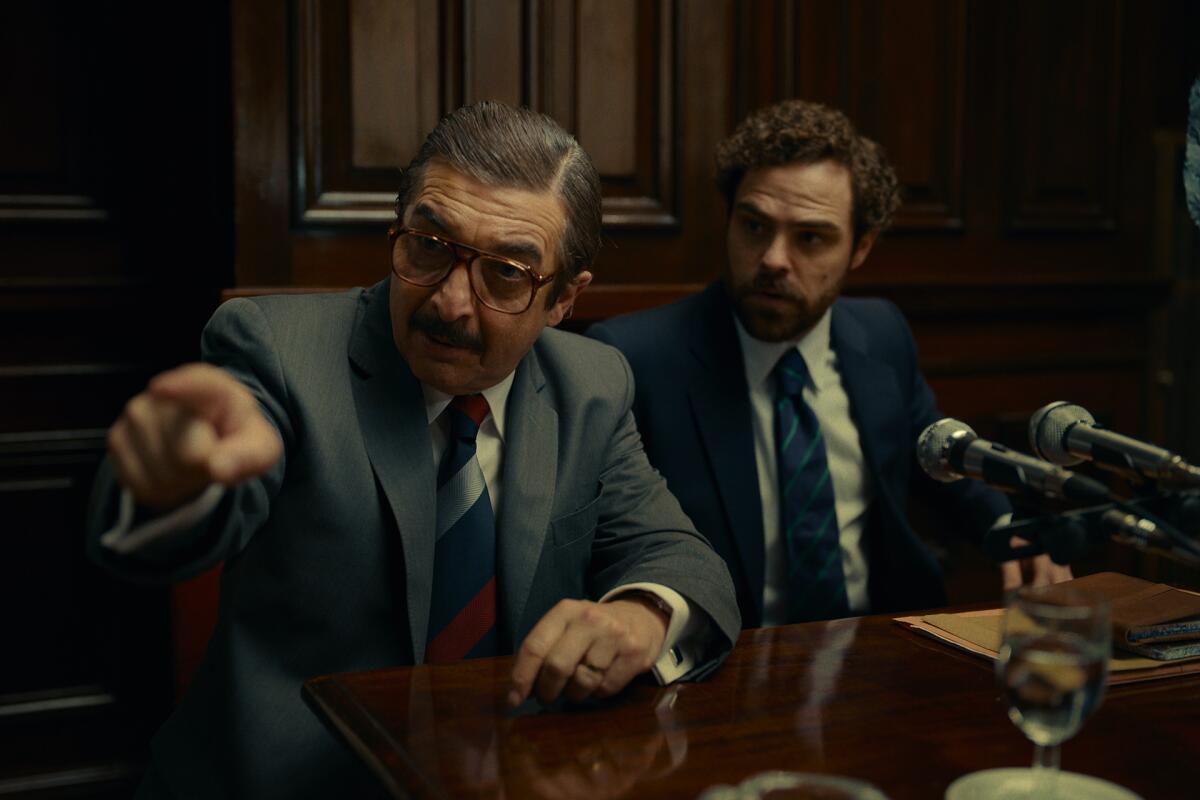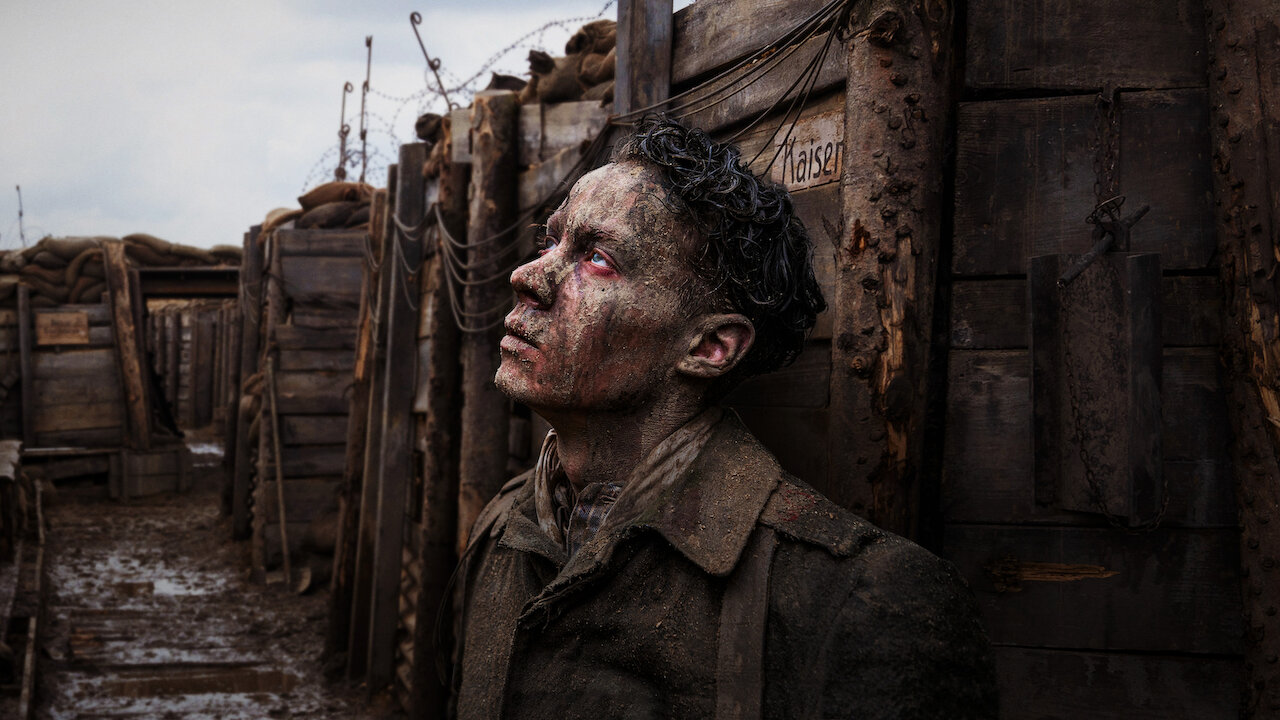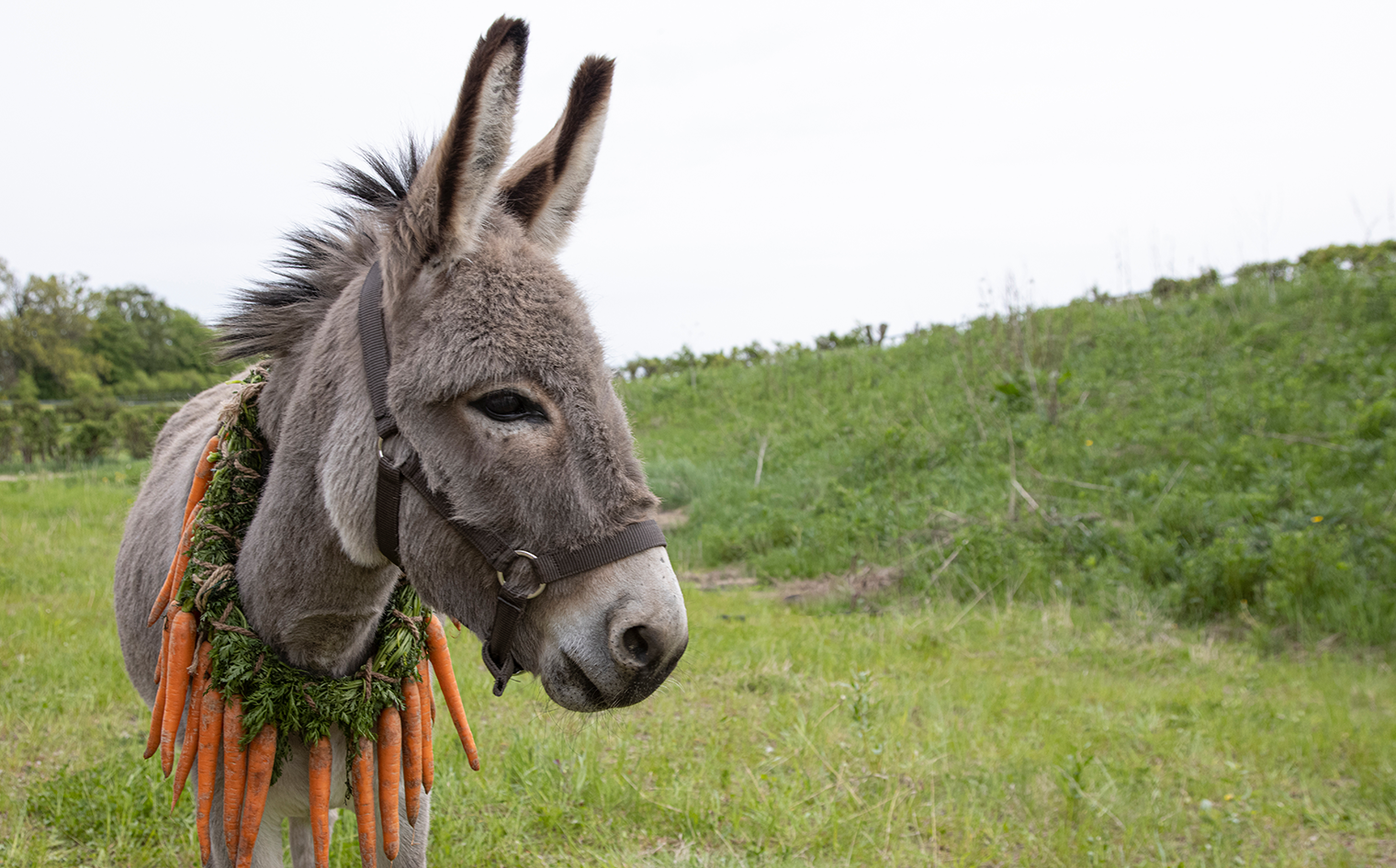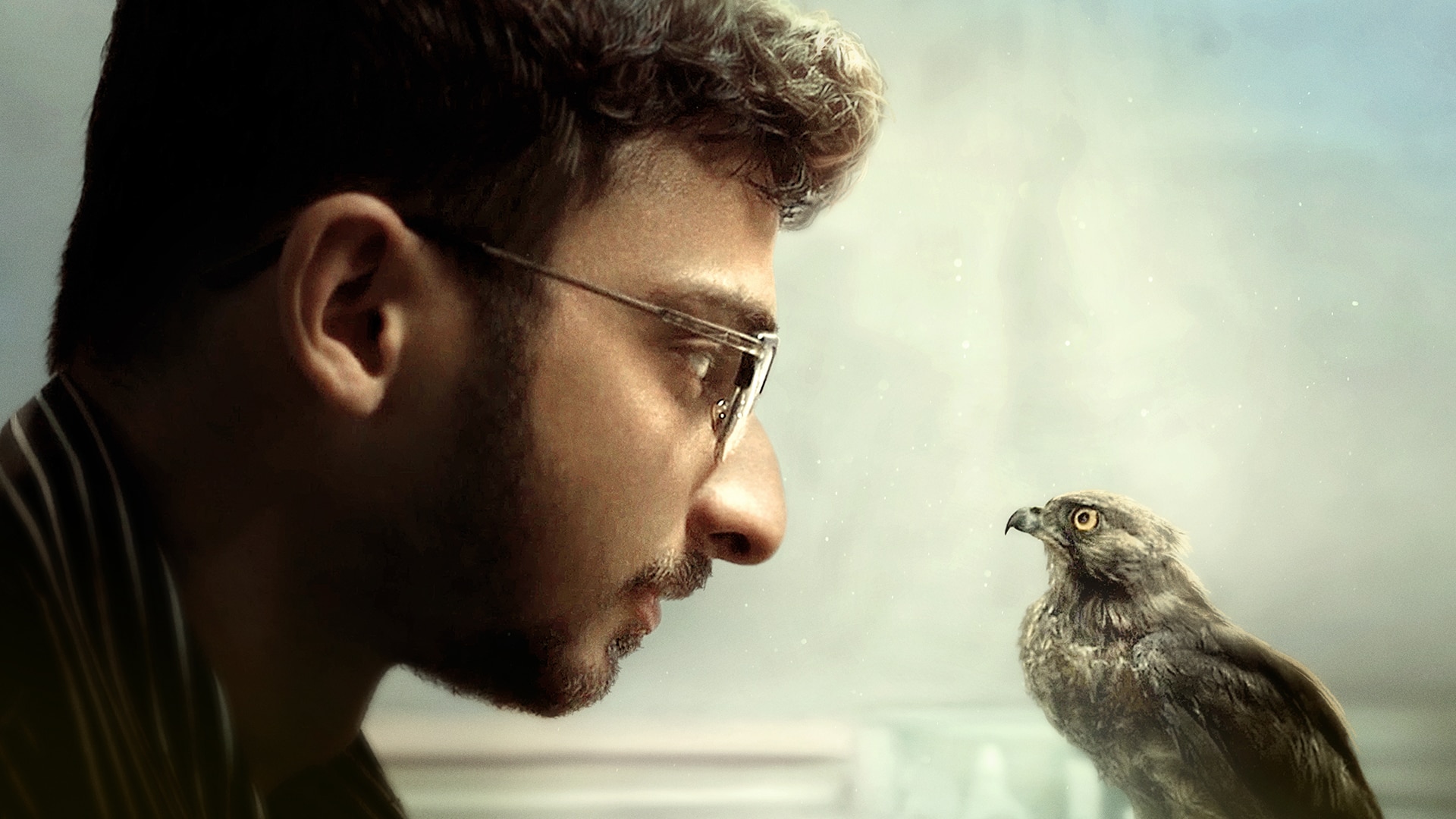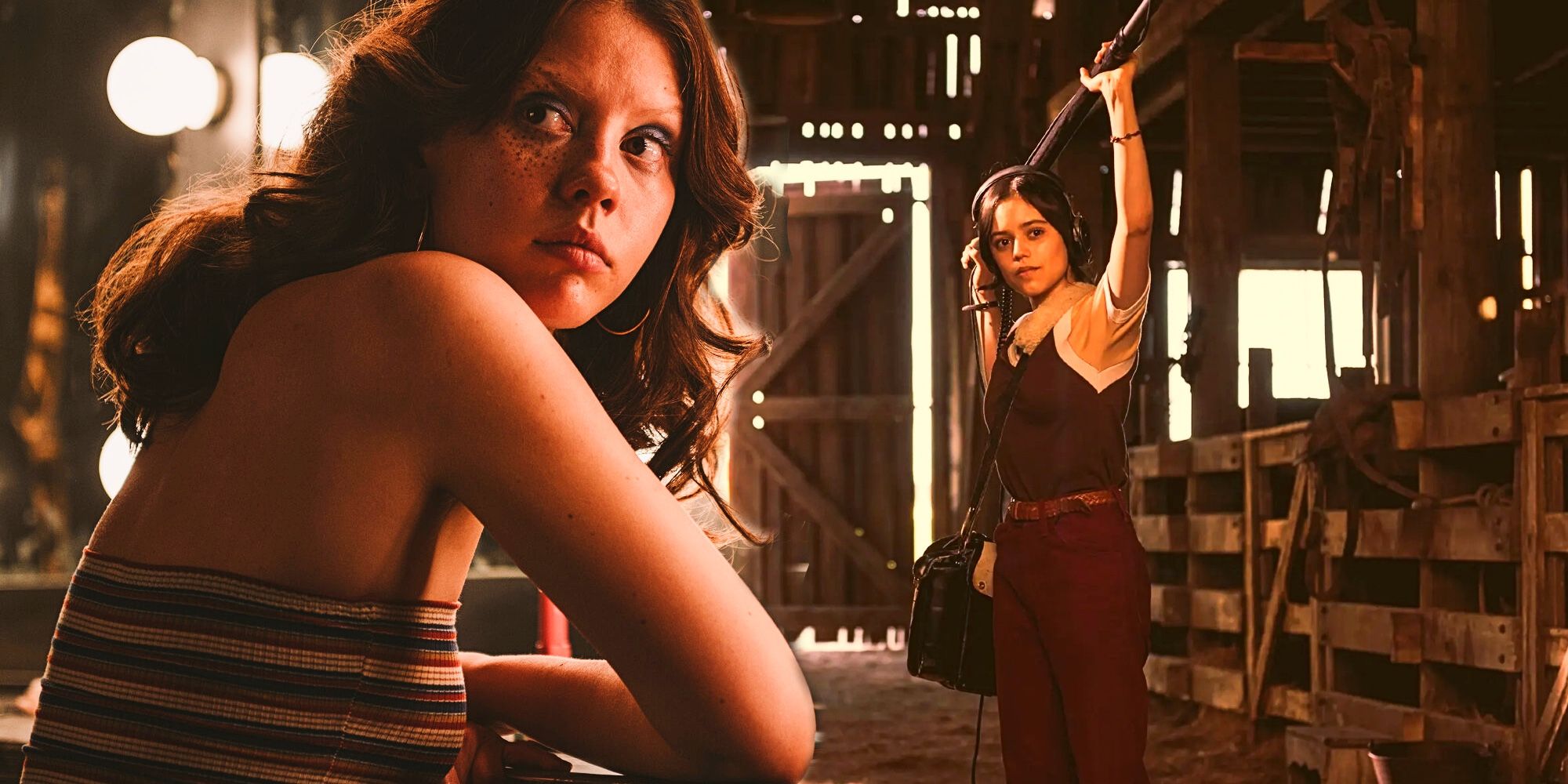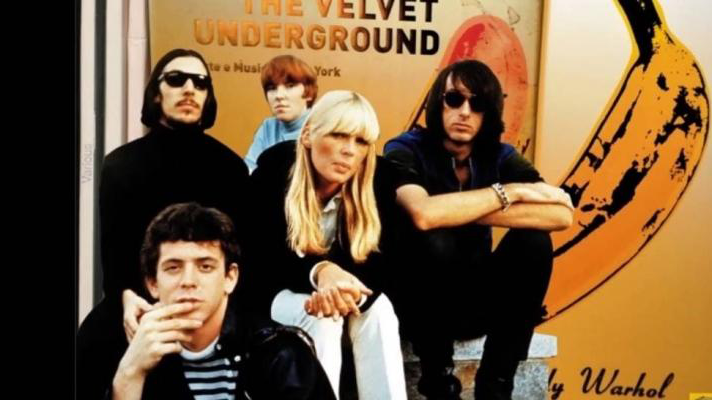David Baruffi's Entertainment Views and Reviews
Intelligent, observant, and thoughtful analysis of the film, TV and the entertainment world. DAVID BARUFFI'S ENTERTAINMENT VIEW AND REVIEWS! Includes Random Movie Reviews, Cannon of Film blogs and Critical essays and commentaries on the latest goings of the entertainment world and culture. CHECK IT OUT! FOLLOW US ON TWITTER AT: @DavidBaruffi_EV
Monday, July 8, 2024
MOVIE REVIEWS #205: "ARGENTINA, 1985", "DON'T LOOK UP", "ATTICA", "LOVE AND MONSTERS", "THIS IS GWAR", "THE PEZ OUTLAW", "PETITE FILLE (aka LITTLE GIRL)", and "REWIND"
Monday, May 20, 2024
CANON OF FILM: "NIGHT OF THE LIVING DEAD" (Romero)
To be honest, I’m not normally into zombies. There’s obviously been some exceptions, but I don’t know....; I have horror fan friends who genuinely find them frightening, or appealing, or both…. They don’t usually do it for me. I think the most compelling and interesting aspect of them is that they’re always metaphorically interesting, but oftentimes, even when done well, I think that the metaphor just becomes way too malleable. What do zombies represent; you don’t really have to stretch too far to make them represent literally anything you want. That’s probably why the most interesting zombie movies in recent years were the ones that were trying something new; I don’t particularly think all of them succeeded at quality, but they were all interesting.
In that respect, George A. Romero’s original terrifying masterpiece, “Night of the Living Dead”, can probably come off as too cliché in the wrong light. No doubt, the technical brilliance is always there, but it’s become literally the playbook that every other zombie movie is either borrowing from, stealing from, or trying desperately to differ themselves from. And yet, under the right circumstances, the movie genuinely can haunt and stir me in ways most thrillers couldn’t dream of. And I don’t think it has anything to do with the “metaphor” of the actual zombies. Romero was definitely symbolic, zombies were never just zombies in any of his films, and I’m sure you can look up theories on this one, and I have one or two of my own, but the things that makes “Night of the Living Dead” so special starts with the executing of the tone of dread. At certain moments at mine, and I’m certain in many others’ lives, we feel like we’re at a point where nothing can go right; the walls keep closing in and no matter how hard you work and stress out just to struggle to keep your head above water, you know deep down that there’s this inherent dread that disaster’s coming towards you. I never really got how, zombies can be so easily defeated and yet seem so frightening to others; I get the idea that they’re so many of them and that they just keep coming is apart of and ware you out and exhaust your resources, but I don’t think most movies really express that veil of dread that that entails. Not that you’re short on everything, but that true sense that something horrible, no matter what, is going to come and take you all out, at the right, or more likely, at the worst-feeling times of your life, watching “Night of the Living Dead” can really grip you in ways other films can’t.
Zombies aren’t actually that prevalent in the film; most of the movie, is that claustrophobia. Zombies are out there, and we’ve seen what they can do, but there’s not much you can do. You’re stuck in a house. Who’s house? I don’t think it’s ever fully determined, and nor does it necessarily matter anymore. What does matter, is hopefully being able to keep them out for as long as you can, until either the threat miraculously ends, or until the inevitable is unable to be delayed anymore.
Duane Jones’s performance as Ben, the film’s protagonist stirs me. A lot was made of casting an African-American as the lead, which was rare for the time in general and especially so for a horror movie, but Jones wasn’t even a professional actor. (In fact, most of the cast, had very little acting experience and didn’t have much after the film.) He was an English professor who directed theater in his spare time, and when he auditioned, Romero re-wrote the part to fit him. I totally get why; he’s got an intensity and a presence that yields a degree of knowledge and authority that I think too many horror films tend to forget to have. In fact, most of the characters are intelligent. When it’s revealed that a family has already taken the cellar to evade the zombies, or ghouls as the radio and TV tell them; I think they both have a point on what the best approach to evade them, and they’re approaches and reactions are reasonable given their particular situations.
What I think really is the secret of the film are the radio and television reports that we hear and watch sporadically throughout the film. Another thing that too many horror films get wrong, but they work brilliantly here, they’re almost as frightening as the actual flesh-eating zombies. They sound and feel like genuine old news reports from that time. They remind me of Orson Welles’s famous “War of the Worlds” radio program, which also used the form and structures of legitimate news broadcast to help tell their story, although this film, they’re used more for exposition, but they manage to more convey the intensity in tone that's needed and sometimes it’s the quiet professionalism of the news broadcast makes the subjects they’re talking about, seem more real. People forget just how believable and how quaint-seeming much of Welles’s broadcast originally seemed as well. (I also suspect some of the Kronkite footage of JFK’s assassination and some of the other broadcasts of tragedies of the era played a part in influence. In hindsight, 1968, in America seems like a particularly intriguing year for this film to have come out.)
Its terror is also intriguing to put into context, horror films were always around, but they were more cheesy and special effects-based, and they were goofy and they were movies, in the most pure entertainment sense. “Night of the Living Dead” really stands out next to them. In many ways, it was the first horror film that really wasn’t for kids to enjoy. It was gruesome and dark, had family members having to kill other family members, and while the ghouls might’ve eaten a ton of human flesh, we didn’t see them graphically eating people before. And the deaths were far more visceral as well.
You can honestly separate modern horror, at least modern-American horror, to before and after “Night of the Living Dead” and yet that fact doesn’t make the movie any less powerful; if anything, it just get more stirring and frightening over time, and Romero’s films in general, have grown in distinction over the years. I have to watch more of them, but part of me knows that they’ll never match up to this one. “Night of the Living Dead” turned horror into terror, and instead of showing a visceral fear of the characters onscreen, it created that visceral dread and fear in us.
Saturday, March 30, 2024
IN MEMORIAM: A HISTORY OF THE OSCARS F***ING UP THE EASIEST PART OF THEIR SHOW!
It's Marvin Hamlisch on piano and Sammy Davis Jr. singing "Come Light the Candles", and it's- barely an In Memoriam.
Also, can I just say, there is something kinda just gross, about bringing somebody in to just do one song about the dead people every year. Not that we need another reason not to do this shit; like, I'm sure all these artists were happy to do this, and that they were at least paid well to do it, but like,-, "Hey, we want you to sing, while everybody is sad for a few minutes, can you come?" That gig sounds awful and kinda offensive, honestly; what would that sound like to you if people asked that of you, that they think of your music, they think about dead people? I might be kinda insulted myself. Even if it made sense,- like, I don't think they ever asked, say Elton John to come and do this while singing, "Candle in the Wind" for them, which is literally a song about a movie star who died, but I'll bet you a million bucks that if they did, he would've immediately rejected the offer, and keep in mind, he's a two-time Oscar winner himself. (And he's smartly kept away from these performances by the way....)
The 2021 In Memoriam is a good example. This is a weird one, 'cause of COVID there actually wasn't an orchestra at the show, and there also wasn't a performance of any kind, so, from what I can tell, I think they used an acoustic version of Stevie Wonder's "As" as the song. I'll let that slide, 'cause 2020 is the exception year for everything, and at least they didn't drag Stevie or anybody else to perform it, but what I will knock them down for is rushing through the In Memoriam too damn quickly!
Compared to that, the 2023 Oscars where Lenny Kravitz sings "Calling All Angels", is considerably better, even though it's pretty awful too. Kravitz's performing his own song is good, but again, we don't need him. Also, this has everything bad about past bad In Memoriams. The bad directing, constantly cutting to a performer, the screen in the background not the foreground, some people getting clips others having to share the screen with another random dead person. I do like, that they added the Oscar insignia for those who've won an Oscar; it's kinda tacky, but I like that that's acknowledged now. The Rock & Roll Hall of Fame, started doing that one recently too, and I kinda like that when they did it. It's still just a lot of everything that ruins the In Memoriam for me, just tamer.
If you really need an extra performance, how about do a new version of that list of songs that were never nominated?! That was cool. Do a modern version, get like, Lin-Manuel Miranda and I don't know, eh, Janelle Monae to do a medley. That'd be awesome. Start with Lin, singing, "We Don't Talk About Bruno" and then have Janelle sing, I don't know, "When Doves Cry", then go into, eh "Secret Garden" or eh, "Part of Your World", maybe do some rap songs that weren't eligible but memorable, like "Gangster's Paradise" or something and Janelle goes into "Independent Women Part I". Let them figure it out and have them do ten minutes on that. Go into. you know, "How Deep is Your Love", or "Don't You Forget About Me" or "Born to Be Wild" or "Jailhouse Rock", have some fun with it. See what new songs missed and what songs from the past they didn't get to. Let the show run a few minutes longer doing that. I mean, we are starting the show at 4:00pm on the West Coast now, so you got the time.
Or Not. But whatever you do, just do the In Memoriam correctly. No noteworthy performer, or any performer, just music that plays, montage plays on a single big screen, so everyone at home can see it! And do literally nothing else to it! Nothing! NOTH-THING! Take an Oscar-winning musical's wishful words of wisdom to heart and "Let It Be"!
Tuesday, March 5, 2024
MOVIE REVIEWS #204: "ALL QUIET ON THE WESTERN FRONT (Berger)", "NAVALNY", "AVATAR: THE WAY OF WATER", "BARBIE", "TRIANGLE OF SADNESS", "EO", "ALL THAT BREATHES", "EMPIRE OF LIGHT", "DECISION TO LEAVE", "HAPPENING", "X (West)", "PEARL", "SAINT OMER" and "THE VELVET UNDERGROUND"!
Lately, I haven't been saying much either. It's not that I haven't had opinions on things that have been happening, but I haven't felt the desire or need to express them. In some ways that could be considered growth, but I just consider it grief. I don't even think I'm gonna be posting for the upcoming award season this year. I'll be paying attention, but with a more passive perspective; the desire is gone. I haven't had the desire to watch films in a while, even before my mother passed. My life's been too much Hell to focus on it. I'm still struggling, I started a GoFundMe, just to get through. I finally did get guardianship of my autistic brother, but now my mom's boyfriend/stepfather, he's been sick as well, and, he's starting to do better, but it's still a struggle. And my brother's not doing great either. I'm gonna be struggling to figure out the next steps for awhile, and hopefully I'll be able to come out of this eventually, and hopefully stronger and better, but for now, I've got other things I have to focus on and it won't be easy.
I've always viewed entertainment as that which is there to distract us and help us relax as we deal with the struggles of the world. I still do, but I certainly get why people, as they get older, just watch and rewatch those programs that make them most comfortable. I haven't been able to focus on newer films, or watch them for that matter. When I do, I feel more distracted than ever. I've had bouts of such apathy before, but never this bad. I hope it's temporary, but even if it isn't, my focus is just not there right now and I don't think forcing it to return is the best thing for me at the moment.
(Shrugs)
I’m sorry, I had a point I was making… Oh, yeah, anyway, on my ballot I ranked Barbie number six.
(Shrugs)
I think it was a good spot for her. I never played much with “Barbie” (Margot Robbie) myself growing up, although I never had anything particularly against Barbie either, which actually makes me unusual ‘cause nearly everybody else in the world does have something against Barbie. Boys hated Barbie ‘cause they were girls, girls hated Barbie for a litany of reasons that would take up a book if I went into detail over all of them, although if I had to boil it down, most of the reasons were because Barbie is a girl, and of course everybody hates Ken (Ryan Gosling) including Barbie, who I believe officially broke up with him, around the mid-2000s I think. (Google search) Yeah, Feb. 14, 2004, oh on Valentine's Day too! Damn Barbie, that's a bitch move!.... So, there you go, everybody hates Barbie. But, a “Barbie” movie has always been a weird thing to me. In fact, any Barbie media on film or television or home video, has always sounded weird, ‘cause, well, who is Barbie? Frankly, I couldn’t particularly tell you. Barbie is…- whoever or whatever Barbie needs to be or whoever you want her to be. She’s,- ummm,- she’s an image of admiration, I guess, but- it’s hard to explain, even if you’ve lived in a world that’s been shaped by Barbie literally your whole life. She is and has become so malleable over the years that, it’s hard for me to actually believe, literally anyone or anything actually is Barbie, so how would you create a story about here?
Well, a few people gave it a shot over-the-years; I’ve been following this film project back when Amy Schumer was originally tasked for writing and starring in the film, and even before then, the project was stuck in pre-production Hell forever. I love Amy Schumer, but I get why she would’ve been the wrong choice here, even if you wanted to do a spoof of Barbie, it’s a fine line to take a product and also be able to satirize it, while also selling it and I don’t know if that really was in her wheelhouse. Frankly, I’m half-amazed it’s in anybody’s, but eventually, Greta Gerwig took over the project and I suspect she started from scratch.
Or, actually, I think she started from “Enchanted”. Yeah, I don’t know if anybody’s compared these two, but “Barbie” struck me as a sardonic version of “Enchanted”. Instead of a fairy tale princess in the real world, we just have a Barbie girl in a Barbie World. Literally, Barbie, lives with all the other Barbies in her own dreamhouse in her owl dreamworld where everything is perfect. Except she begins to have thoughts of death and other disturbing ideas. Then, her feet become flat and other odd things start happening. She can’t fly down from her rooftop anymore, her toast got burnt, even the Lizzo song interrupts her day to ask if she’s okay. It’s weird. Eventually, she ends up getting help from Weird Barbie (Kate McKinnon), the Barbie who got played with a little too hard and rough in the real world. She’s like the Barbie World medicine woman who everybody makes fun of behind her back and to her face, even if everybody kinda begrudgingly respects her.
Robbie is Stereotypical Barbie, so she’s the most bubble-headed bleach blonde of them all, even to the point of being completely oblivious to Ken’s needs and desires to be with her. In this world, Ken’s are just there to be at the beckon call and will of Barbie, but apparently something is amiss, so before things get any wronger or stranger for her, she decides to leave for the Real World, to find the girl playing with her, figuring that solving her emotional crises could help her get over hers. Ken tags along, and immediately, they get arrested a couple times, as they begin rollerblading on the West Coast, and realize that they don’t have a lot of money or the means to get by, and eventually two stranger dimwits going around half dressed saying their Barbie and Ken, gets the attention of the Mattel people. Apparently this has happened before, y’know, but with Skipper, so nobody cared, and they need to get Barbie back to BarbieLand. (They're not so much worried about Ken being out.)
Eventually, Barbie does find out about how much or how poorly Barbie’s influenced the world, eventually finding her owner, Gloria (America Ferrara) a Mattel employee who’s struggling raising her angst-filled daughter, Sasha (Ariana Greenblatt). Meanwhile, Ken learns about patriarchy and begins embracing a more machismo view of the world and the media he’s apart of. While he’s not equipped to get the male positions in society that he really desires, he goes back to Barbieland and immediately starts changing things in order to make all the Kens more dominant in decisions and the Barbies becoming more subservient to them. This is actually kind of a improvement from “Enchanted” but it’s still just as goofy. It’s just goofy and definitely has a sharper point about society at large.
That makes sense. In a way, if you can describe Barbie, it’s that she’s always been a representative of the times that she’s around. When she started, in was in the 1950s, and my Aunt Patty had one of the early original Barbie that would’ve made me buttloads of money if my grandmother hadn’t toss it away not-knowning the value that doll would’ve had now. Back then, just the idea of a doll that wasn’t a baby or child for a child herself was a novel idea, the idea being that she could become the adult that the girl would envision. What that adult is, eventually could be anybody and continue to evolve and change based on what society has thought that “anybody” could or should be. So, the film, taking the approach of comparing an ideal Barbie World, to the real world, and then seeing the collision between them, how Barbie struggles to have the influence/impact on the world that was originally intended, and then seeing that ideal world, ruined by an idea of a Ken-dominated patriarchy…- it’s definitely subversive, and at times, really funny, even if it is still a commercial, although Mattel doesn’t necessarily come off that ideal in it, but I don’t think they care that much. I mean, they’ve had a couple female CEOs in the past, so they’re good?
How good is “Barbie” though… Well, I don’t know honestly. I’ve been debating this one myself. It’s apparently beloved for its sharpness and wit, it’s made most of the award season, including the Oscars. I can’t completely tell if it’s truly that good. I guess in order to really see just how good it, I have to think about, exactly what it could’ve been, ‘cause absolutely this could’ve been awful. Most toy adaptations are questionable-at-best, despite many of them being much more easily adaptable to the feature film format. I mean, I’ve never like G.I. Joe, but I get why that could be a movie franchise. (Yes, I left G.I. Joe off my poll, not only is G.I. Joe an action figure that sucks, but he’s caused more harm to society than Barbie has done. [There’s your controversial “Barbie” opinion for you]) Barbie, really could’ve been as empty and blank as a stereotypical barbie doll, and it probably would’ve still been big, but Greta Gerwig is a lot smarter than that. She made not only “Lady Bird”, but also the best adaptation yet of “Little Women”; in fact, her “Little Women” is very much the key to this film. That movie is also about recontextualizing a text, and a very feminine one at that, and then looking at how it was essentially corrupted and reinterpreted by a more masculine patriarchal structure before being put out into the world, and essentially revealing just how that itself has effected the world; how Louisa May Alcott had to change the ending despite finding love not being representative of Alcott’s own vision. That’s what makes her perfect for Barbie. Gerwig’s constantly struggling to find an equal place in a masculine-controlled world. Hell, even her Best Director snubs in recent years can be interpreted as such, and it’s all through her material. “Barbie”’s just the most populous and pronounced product that she’s supplementing this conflict through. It’s also probably the most obvious medium you could express this ache and frustration through.
In that respects, “Barbie” is exactly the only movie that could’ve been made, at least the only one with any emotional power at all. It’s still a blatant commercial, but in a way, it’s the best kind of blatant commercial, the one that’s honest enough about it to show its greatest faults warts and all. Good job, Ms. Roberts, you got about as good movie out of you as you possibly could’ve been. (Yeah, Barbie’s actual full name is Barbie Millicent Roberts. That’s my favorite Barbie fact; I guess because knowing her middle name is Millie shows just how old she actually is.)
